






While a snowstorm rolling into Kansas Jan. 8 and 9 may have impeded many Kansas Soybean Expo hopeful attendees, it could not halt the education and engagement taking place in Maner Conference Center Jan. 10.
The 43rd annual Expo prepares soybean growers for the upcoming crop season by bringing industry experts together for a day of learning and networking. With economics, research and weather on the table for 2024, attendees walked away with a better grasp of soybean price trends, checkoff deliverables and La Niña weather patterns. Hosting the esteemed former U.S. Sen. Pat Roberts as the luncheon speaker and capping the day with the Game Show Road Show was a memorable event.
“It was a great event,” Expo co-chair Matthew Atkinson, Columbus, says. “We got some great information on weather and marketing; we got insight on how K-State research is progressing. Getting to see Senator Roberts was a treat and the game show at the end of the day was a blast.”
Dan O’Brien, K-State Research and Extension economist, and Mark Nelson, Kansas Farm Bureau Director of Commodities, kicked off the event with their perspectives on managing risk in the marketplace. Pricing proved to be a key topic in the presentation. The duo spoke on post-harvest pricing on-farm
versus commercial storage and how to gauge various scenarios using pricing formulas.
“Storage does not pay every year. This year it has not, though it typically does,” Nelson informed the crowd.
Nelson advised listeners to take the emotion out of marketing and implement a strong pricing plan to guide decisions.
“Every plan needs to have pricing increments,” he says. “Pricing targets is maybe the biggest one, ‘which futures price do I think is the highest?’ Pricing dates drive you to action. Create an objective plan and implement the plan.”
O’Brien’s portion of the presentation covered South American markets, world stocks and marketplace uncertainties.
Of note, O’Brien told attendees, “Futures are underrepresenting the uncertainty in the marketplace.”
Rounding out the morning, four Kansas State University College of Agriculture researchers participated in a panel moderated by Jane Schuh, K-State director of agricultural research. Drs. Ignacio Ciampitti, Sarah Lancaster, Rodrigo Onofre and William Schapaugh spoke on their respective areas of expertise and explained how the soybean checkoff furthers the industry’s knowledge of growing soybeans.

Kansas Soybean Commissioner Ron Ohlde, who serves on the North Central Soybean Research Program board, says herbicides generated considerable interest from attendees. Lancaster, a weed science specialist, presented how she utilizes checkoff funds to conduct research on herbicides, residual and biological weed control methods.
Ohlde says Onofre’s information on plant diseases, primarily sudden death syndrome, struck a chord with the audience.
“SDS is really becoming an issue,” Ohlde says. “Rodrigo is out scouting for it and examining different remedies. He had attendees’ attention on that.”
Schapaugh’s explanation of the breeding process and Ciampitti’s take on seed size and yield brought value to the discussion.
Drawing the largest crowd of the day, Pat Roberts regaled the luncheon attendees with stories from his 40 years in the political sphere. Even when Roberts’ incoming flight rerouted from the weather Tuesday, he found alternate transportation to make the event by Wednesday.
“If there’s a soybean meeting, by golly I will be there,” he proclaimed during his speech.
The upcoming Farm Bill – and its many delays – drew interest from the audience, as did recent actions from the Environmental Protection Agency.
Continues on page 3
The start of 2024 for most of Kansas is a white one. While I’m sitting at the computer working on this article I glance down and the temperature outside is -10 degrees. Cold temperatures and wind are not the ideal situation for livestock producers, but hopefully the snow will bring some much-needed moisture to the state.
Volume 28, Issue 4 | January 2024
1000 SW Red Oaks Place, Topeka, Kansas 66615-1207 phone: 785-271-1030 | fax: 785-271-1302
877-KS-SOYBEAN (877-577-6923)
www.KansasSoybeans.org | info@kansassoybeans.org
2024 Board of Directors
District 1
District 2
District 3
District 4
District 5
District 6
District 7
At-Large
At-Large
Atchison County
Brown County
Cherokee County
Doniphan County
K-State Research & Extension
K-State Agronomy
Kansas Soybean Processors
Kansas Soybean Commission
American Soybean Association
American Soybean Association
Young Leader
Young Leader
Brett Neibling, Highland
Brice Bunck, Topeka
John Pracht, Westphalia
Matthew Atkinson, Columbus
Michael Musselman, Clifton
James Moreland, South Haven
Teresa Brandenburg, Osborne
Jared Nash, Parsons
Brandon Geiger, Denton
Scott Gigstad, Everest
Greg Strube, Horton
Roger Draeger, Galena
Josh Falk, Robinson
Sarah Lancaster, Ph.D., Manhattan
Raj Khosla, Ph.D., Manhattan
Jessie Smith, Emporia
Ron Ohlde, Palmer
Charles Atkinson, Great Bend
Andy Winsor, Grantville
Adam Phelon, Melvern
Daniel Anderes, Junction City
2024 Executive Committee
President
1st Vice President
2nd Vice President
Secretary
Treasurer
Chairwoman
Staff
Chief Executive Officer
Director of Field Services
Director of Communications
Director of Operations and Accounting
Director of Programs and Outreach
One of our speakers for the Kansas Soybean Expo January 10 was Joe Lauria, a meteorologist from Kansas City. He predicted that by spring and summer of this year we will be back to a La Niña ocean current, and historically this type of ocean current brings more favorable weather and moisture to Kansas. Let’s hope history repeats itself!
Scott Gigstad
Brett Neibling
Jared Nash
Michael Musselman
Brice Bunck
Teresa Brandenburg
Kaleb Little
Dennis Hupe
Amanda Manville
Adam O’Trimble
Jancey Hall
Communications and Membership Specialist.....................Josey Mestagh
Accounting and Administrative Assistant
Meghan Bechard
Speaking of Expo, we had a memorable one this year. First, we had a major snowstorm the Tuesday before. Due to the inclimate weather our numbers were affected, but for those who could make it, we had a great Expo! That brings me to the second memorable occasion, the honorable former Sen. Pat Roberts spoke at the luncheon. Even though he has been retired from the Senate a few years, he has not lost his wit or sense of humor. He told many stories and discussed the confrontational political atmosphere of the country and the disappointment of not having a new farm bill. He reminded us of how important it is that our association continues to speak up when government organizations like the EPA present counterintuitive proposals and carries the needs of Kansas soybean farmers to elected officials.
One topic I would like to clarify is membership. I hear comments that KSA memberships dollars are being confused with checkoff dollars. I understand the confusion; however, checkoff dollars are closely monitored and used for new market development, research and outreach programs. Check-
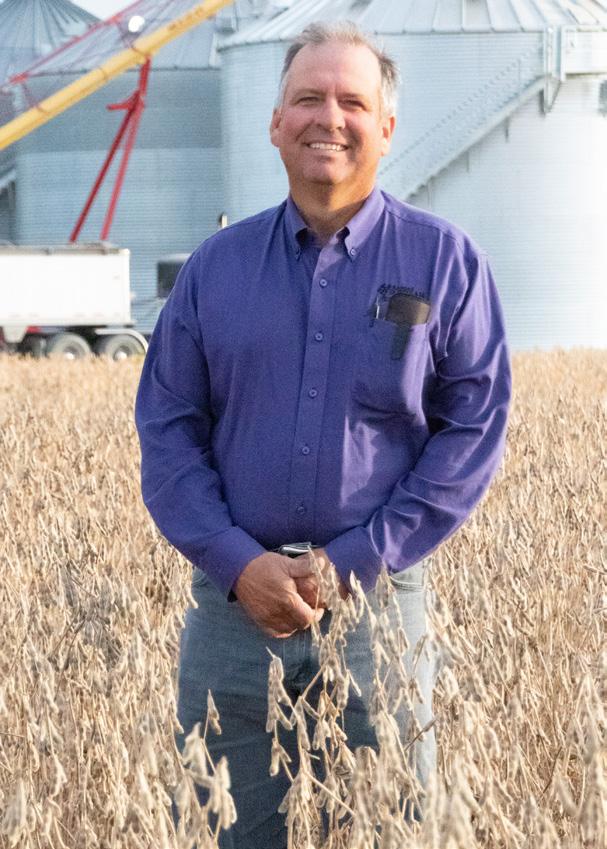
off dollars are NOT used for policy writing or for advocating in Topeka or Washington, D.C. Only dollars generated by memberships can be used for advocacy. If there is one thing I have learned while serving on this board, it is that you cannot take anything for granted in Washington, D.C.— constant communication is a must! Your membership is important and allows us to talk with lawmakers and their staff.
To our current members and corporate sponsors, on behalf of the Kansas Soybean Association, I thank you for your support. If we continue to work together, we can guide Kansas soybean farmers to the next generation. I always encourage people to take time and stop by the office in Topeka to meet the Kansas Soybean staff. If you have questions or concerns, please feel free to reach out to me. Let us be thankful in 2024 for the blessing of farming to feed and fuel the world and to be faithful stewards of the land our creator made.
Following the 2023 Yield and Value Contests results, Joe Lauria, FOX4 Kansas City meteorologist, took the stage to surmise 2024 weather forecasts.
Lauria joked that growers might expect “La Nada” over the summer as he explained how La Niña and El Niño weather patterns interact.
“I left the session with the feeling we might have more rain this year,” John Pracht, Kansas Soybean Association District III director, recalls.
Weather models proved a hot topic for the audience. Lauria stated that society can be over-reliant on imperfect
weather models and the human element continues to be reduced. When relying on a model, he shared that NexLab is his go-to resource and demonstrated where to find and utilize the site’s weather data.
“It was good that he showed us some websites where we could go to look at models ourselves,” Pracht says.
Inevitable questions about climate change surfaced during the hourlong session. Lauria asked the audience, “Are you seeing changes?” with notable acknowledgment.
“You’re seeing changes, how can you react?” Lauria asked,
continuing, “Hopefully technology helps you out.”
Dave Lewis closed the day with the Game Show Road Show.
“We have brought in comedians in the past,” Atkinson says. “This type of session is a great way to break up the day and add something lighthearted into the schedule. We got to end the day on a high-note and leave feeling good.”
The Kansas Soybean Expo is an event from the Kansas Soybean Association made possible by the Kansas Soybean Commission and soybean checkoff.
Net neutrality — the principle that internet service providers must treat all communications equally— is back on the table after being repealed in December 2017. Net neutrality has three pillars for equal communication: no blocking, no throttling, and no pay-for-priority. Essentially, ISPs cannot prevent or slow down access to specific websites or services, and website hosts cannot pay to ensure fast access to their content.
Net neutrality intersects with something top of mind for many farmers – rural broadband access. Having equitable broadband reach is necessary for farmers to be efficient and profitable on their operation. Today’s farmers depend on data from multiple sources to make time-sensitive decisions.
“Whether it’s uploading maps into the tractor’s GPS to entering data for soil samples or simply trying to make a call, spotty service affects us every day,” Adam Phelon, KSA director, says.
The Kansas Office of Broadband Development works to help Kansans bridge the digital divide by advancing broadband access. As part of the Broadband Equity Access and Deployment five-year plan, the agency proposed a program to address connectivity challenges. Titled Kansas Broadband Ready Communities, it is “designed to pave the way for improved broadband access in communities across the state,” according to the Kansas Commerce website.
The five-year plan also aims to:
• Ensure universal broadband coverage to every home, business, farm and Community Anchor Institution
• Leverage innovative solutions and “future-proof” technologies for broadband deployment and accessibility
• Continue to develop and evolve the digital economy throughout the state
• Ensure all Kansans can live, learn, work, play and com-
pete regardless of where they live in the state
Proponents of net neutrality say it ensures fairness for small ISPs and should improve connectivity across rural America. Opponents say its implementation could result in decreased access and higher costs for consumers due to regulations, system strains and infrastructure investments.
“Farming can be a high-stress environment and having quality internet service is absolutely essential in limiting the number of mistakes,” Phelon says. “When we are not able to be efficient with our time and decision making due to lack of data, it can ultimately affect yields and our ability to stay profitable and sustainable and even affect how safely we can do our job.”
While the Kansas Soybean Association monitors legislation related to broadband infrastructure, it has taken no position on net neutrality.

I grew up and attended school near South Haven, Kansas. After high school, I attended Oklahoma State University receiving a bachelor’s degree in animal science with a business emphasis. My wife Liz and I have three
beautiful girls, Roslyn, Ruby and Ramie.
After graduating from OSU, I returned to the family operation with my father and two brothers. We raise soybeans, wheat, corn, cotton and beef cattle. My role varies from dayto-day; there isn’t much I don’t get involved in while trying to keep the overall efficiency and end goal in mind – to grow and maintain a sustainable agriculture operation.
I am also a member of the community church of South Haven and active with my children’s school activities.
My first exposure to the Kansas Soybean Association was at a dinner hosted for farmers in my area. During that dinner, I learned more about the association and the programs connected to it, like the Emerging
Leaders Academy. I participated in Class 5 in 2018 and then had the opportunity to complete the Corteva Young Leader program in 2022. I made many connections with others in the industry state and nationwide through the Young Leader program.
After the program, I joined the KSA board in 2022 in one of the Young Leader seats. In 2023, I was able to move into an open District 6 seat. My goal being on the board is to take an active role in supporting the industry we are a part of and be a voice for our operation and all of those in my district.
The work KSA does is important because it is focused on our geographical region within the state. Our production systems may vary greatly from other regions and states, but KSA is able to make our voice heard on a state and national level.
The Kansas Soybean Association farmer-led board met in November and January to discuss upcoming events and current policy matters.
At the Nov. 17 meeting, directors conducts regular business.
• ASA reported that the government avoided another shutdown and work on the next Farm Bill continues.
• Corteva Young Leader participants were also announced: Ben and Kristen Bellar, Howard and Ryan and Alisha Delaney, Osborne. Read more about them on page five.
• Tom Verry with Clean Fuels Alliance America gave an update on new applications for soybean oil and how much biofuel consumption has increased.
The Jan. 9 meeting was a time to look ahead at 2024 and prepare for the year.
• The policy committee set the 2024 KSA policy priorities Jan. 8, find them on page five.
• After receiving the Clean Fuels update from Verry in November, the policy committee made it a priority to reinstate funding for the
Kansas biodiesel production incentive and work with government to increase biodiesel usage.
• Board members received updates from ASA’s Washington, D.C., staff.
Close partnerships with our state’s land-grant university and national organizations allow for collaboration on items important to Kansas soybean farmers.
The next meeting is scheduled for March 15.

Whether shipping by river, road or rail, the soy checkoff is committed to ensuring America’s infrastructure is a significant advantage for U.S. soybean farmers. We’re looking inside the bean, beyond the bushel and around the world to keep preference for U.S. soy strong. And it’s helping make a valuable impact for soybean farmers like you.
See more ways the soy checkoff is maximizing profit opportunities for soybean farmers at unitedsoybean.org
While farmers were presented with many challenges in the 2023 growing season, it did not halt the competition for the best bean. Even with drought pressures and high heat indexes, contest entries indicate higher yields in 2023 than 2022.
“The contests highlight some of the technologies and varieties that are effectively increasing yields throughout the state in varied weather conditions,” Josh Falk, Doniphan County representative, says.
Brett Froese Farms of Inman claimed the highest irrigated yield with 104.2 bushels per acre, he also received first place in the statewide no-till irrigated division. Batchelder Farms, Highland, submitted the top dryland entry with 101.3 bushels per acre and took first place in the north-northeast conventional-till dryland category.
With a $1.27 premium, Chad Neill of Effingham won the valcontest. Robert Litch, Melvern, took second place in the value contest with $1.26 premium, trailing closely behind first place. Roger Johnson, Hoxie, received third place with a $1.22 premium.
Second place in the statewide no-till irrigated division was George Ensz, Inman, with 94.4 bushels per acre. Menold Farms Inc., Hiawatha, took third place with 92.3 bushels per acre.
Doug Mills, Hugoton, won first place with 102.2 bushels per acre in the statewide conventional-till irrigated division. Chad Penner, Inman, submitted the second place entry for the statewide conventional-till irrigated division with 100.2 bushels per acre. Haven farmer Sam Miller claimed third with 94.8 bushels per acre.
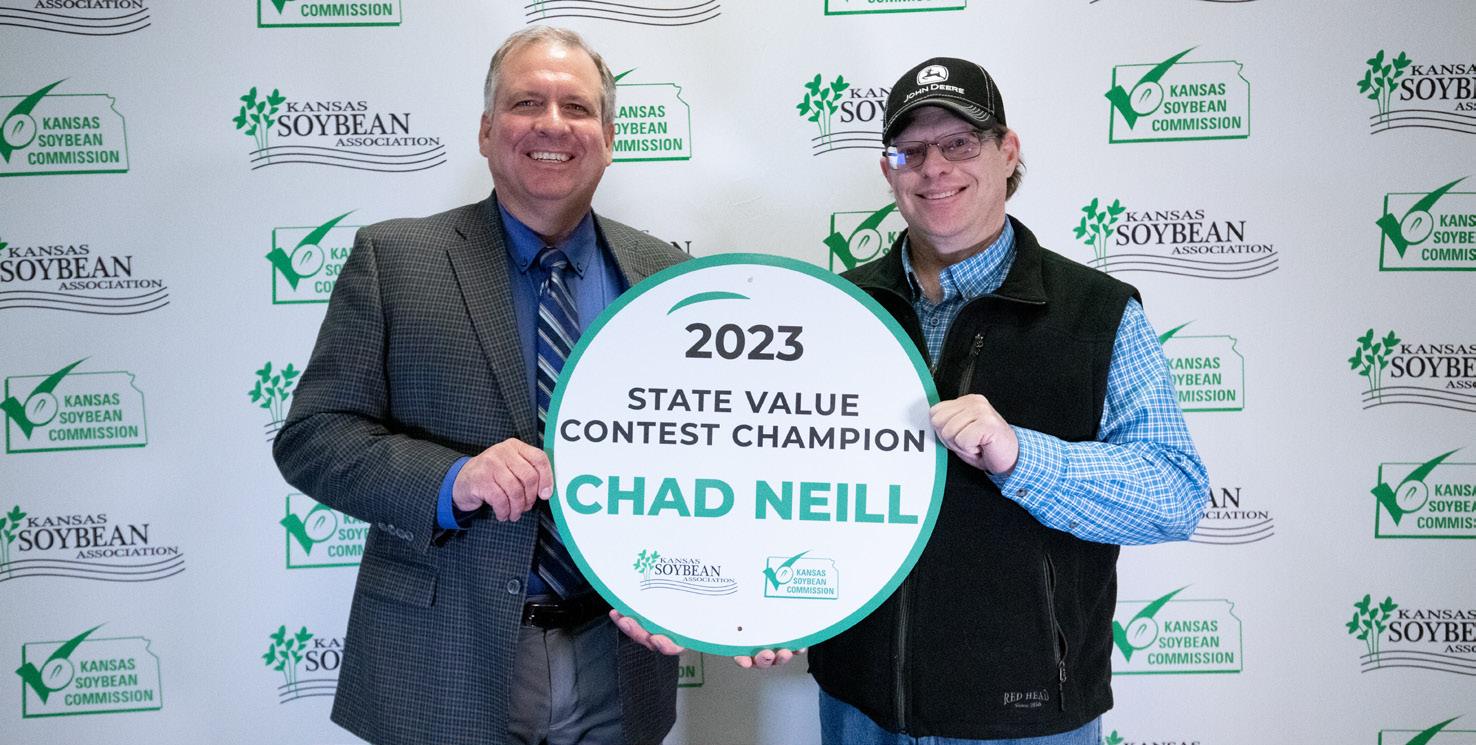
To continue the north-northeast division, Gary Diveley, Severance, earned second with 91.4 bushels per acre. Jesse Clark, Robinson, came in third with a yield of 90.8 bushels per acre. In the no-till dryland category, Johnson Ag, Inc., Bendena, submitted the winning entry at 88 bushels per acre. Falling second was Paul C. Johnson, Bendena, with 85.1 bushels per acre. In third, Alex Noll, Winchester, entered 80.4 bushels per acre soybeans.
Vering Land and Pork LLC of Marysville topped the northeast no-till dryland division with a yield entry of 90.7 bushels per acre. In second place was Jared Lock, Hiawatha, with 87.0 bushels per acre. Derek Gigstad, Valley Falls, claimed third place with 82.8 bushels per acre.
In east central Kansas’ no-till dryland division, Robert Litch of Melvern claimed a first place entry with 59.6 bushels per acre.
Rod Stewart of Washington submitted the top yield in the north central conventional-till dryland division with 62.8 bushels per acre.
Ryan Stewart, Washington, won first place in the north central no-till dryland category with 62.4 bushels per acre.
Aaron Pauly of Viola took first place in the south central notill dryland division with a yield of 69.5 bushels per acre. Bruce Seiler, Colwich, came away with second place with 42.1 bushels per acre.
In the southeast conventional-till dryland division, Roger Draeger of Galena submitted the winning entry with 79.5 bushels per acre. Chris Payne, Buffalo, took second place with 68.6 bushels per acre. In third place with 65.1 bushels per acre was Luke Bellar of Mound Valley.
Dalton Draeger topped the southeast no-till dryland division with 73.4 bushels per acre. Bradley and Emily McVey of Fredonia received second place with 69 bushels per acre. From Parsons, Jared Nash claimed third place with 51.9 bushels per acre.
The Kansas Soybean Commission provides monetary awards to finalists each year. The highest dryland and irrigated yields in the state each receive $1,000 award. In each district and the value contest, first place receives $300, second receives $200 and third receives $100. Full results and production practices are available at kansassoybeans.org/contests.
The Corteva Young Leader Program prides itself on training innovative and engaged growers. The Kansas Soybean Association selected two couples to participate in the 2024 program, which completed Phase One in December: Ben and Kristen Bellar of Howard and Ryan and Alisha Delaney of Osborne.
The Bellars are part of a large family operation. After graduating from Kansas State University with a bachelor’s in agricultural technology management in 2014, Ben returned to the family farm. Kristen was a Natural Resource Specialist for Natural Resources Conservation Service until 2023, she now uses her skills for work on the farm. She aids in bookkeeping, conservation decisions, harvest-time labor and much more.
The Bellars are both active members of Farm Bureau, including the Young Farmers and Ranchers program, and they serve on the local Emergency Management county board. Ben is also a volunteer firefighter for the Howard City and Howard Rural Fire Departments and participated in the Kansas Corn Corp program.
Ryan and Alisha are both employed by Sims Fertilizer and Chemical. On the side, they run a cow-calf operation and small crop farm. Ryan is on the City
of Osborne planning and zoning commission and was recently appointed on the city council board. Alisha is active with their kids’ 4-H and FFA activities.
During phase one, the Bellars and Delaneys had a full agenda. They learned more about national organizations, including ASA, USB, USSEC and Corteva and received an overview of biotechnology and gene-editing. Other tours were on the schedule to provide a variety of knowledge and allow for more networking between all participants.
“I really enjoyed going to the World Food Prize tour as it was something I had no idea existed,” Alisha Delaney says.
Kristen Bellar says meeting peers from 16 other states and Canada began a cultivation of new friendships within the soy family and learn how their operations run.
Being a leader requires continued education and involvement, like the Corteva Young Leader Program.
“Phase one was an allaround learning experience for me,” Alisha Delaney says. “That’s probably the most important thing, to make sure that you keep learning everything you can about the work you’re doing.”
Setting policy priorities guides the KSA board in its efforts to represent the state’s soybean growers by outlining top issues to monitor and discuss with elected representatives. Aided by policy consultant Gary Reser, the policy committee determines these priorities by elevating the needs of their peers and considering situations in the industry. The 2024 policy priorities are as follows:
1. Maintain the right to farm in Kansas while working to keep a positive environment for livestock, aquaculture, and other agricultural related industries.
2. Keep the current sales tax structure for farm equipment and other agricultural purchases. Continue support for funding state government through the use of sales and/or income tax without placing more burden on property tax.
3. Maintain the current use-value appraisal system for taxation of agricultural land.
4. Support fully funding the Kansas Water Plan and common-sense management of state water use that does not disadvantage agricultural industries.
5. Work with Kansas Department of Transportation on the Soy Transportation Coalition project to test the structural integrity of Kansas’ bridges.
6. Reinstate funding for the Kansas biodiesel production incentive and work with government and fuel suppliers to promote increased biodiesel usage. A complete listing of current adopted policies is available at kansassoybeans. org/policy.
“We strive to be one of the agricultural organizations that lawmakers come to for direction on what policies are best for all of agriculture, not just the soybean industry. We are a resource for lawmakers on all levels to explain how policies will impact farmers,” Andy Winsor, policy chair, says.
What do you foresee as the biggest policy challenge for U.S. soybean farmers this year?
From issues impacting the farm economy, markets, and transportation of soybeans, policy headwinds and opportunities for soybeans are too numerous to boil down into one issue area. Here are a few:
With the extension of the farm bill to September 30, 2024, Congress gained additional time to craft a farm bill. ASA will continue advocating for a meaningful, comprehensive farm bill that addresses soy’s priorities. These priorities include improving the Title I farm safety net, protecting crop insurance, increasing investment in trade promotion programs to expand and diversify trade, and protecting the soy checkoff, among others.
Access to crop protection products is another important issue for soybean farmers. The Environmental Protection Agency has proposed approaches for farmers to comply with the Endangered Species Act that are costly and burdensome, and in some cases, not possible to implement. ASA will continue to promote science-based policies and reasonable approaches that allow farmers to do what they do best: produce soybeans for use in food, feed, fuel, and biobased products for consumers here at home and abroad.
An issue area that provides continued opportunity for soybeans is biofuels, including expanded use of biofuels for ground transportation and more recently, for fueling aircrafts and marine vessels, among other uses. In December, the U.S. Treasury Department released long-delayed tax credit guidance that provides a positive pathway for soy-based feed-
stocks to be more readily used in sustainable aviation fuel, or SAF. ASA will continue advocating for interagency methodology that supports this tax credit for soy’s use, specifically, in SAF, along with other opportunities to increase soy feedstock use.
While ASA is not the soy checkoff, ASA is working to protect the soy checkoff against harmful legislative attacks. ASA and other groups stepped up this fall to soundly defeat—by a heartening 377 nays to 49 yeas—an anti-checkoff amendment that arose in the U.S. House of Representatives. While this was a huge win, we will remain vigilant to ensure that farmer-led, farmer funded checkoffs that provide significant return on investment can continue despite recent legislative attacks.
What are the main topics in regulations right now, specifically for biotechnology?
There is currently a great deal of policy activity specific to biotechnology. USDA has proposed additional regulatory exemptions for plant gene editing that could help unlock the enormous potential of that technology. On the other hand, EPA has recently finalized a rule that would impose unnecessary burdens on certain applications of gene editing. In both cases, ASA is continuing to advocate for appropriate, science-based policy solutions that will unlock agricultural innovation.
Why is the policy work done in Washington, D.C., important to farmers in Kansas?
Whether the issue is shaping a new farm bill, ensuring access to crop protection products, enhancing opportunities for biofuels and other markets, or protecting against harmful tax
changes, ASA is working hard, including alongside allied organizations, to inform policymakers and their staff of soy farmers’ policy priorities—and keep advancing those policy priorities. Very simply, policy work in our nation’s capital impacts both farmers’ bottom lines and their livelihoods on what is typically multigenerational farms.
What can Kansas soybean farmers do to promote and help with ASA’s 2024 policy priorities?
A key part of ASA’s success is member awareness and engagement throughout our many soy-growing states: being aware of what’s happening in Washington, D.C. ASA tracks developments closely, and we share those developments with our state member organizations so they can pass them on to their farmer members. Farmers can then, in turn, be involved in grassroots engagement, which is critical!
We always ask that farmer members educate policymakers and their staff about agriculture in their states and congressional districts. With high turnover in Congress, including at the staff level, raising awareness about the importance of agriculture is so important.
Lastly, respond when there is a specific need for action. That could be weighing in with a policymaker through an email or phone call, or it could be participating in a town hall meeting or listening session. Policymakers need to hear from you! Your voice matters. Farmers can sign up to advocate on specific issues through ASA’s Soy Action Center at soygrowers.com/ soy-action-center/.
The esteemed former Senator Pat Roberts was the featured speaker at Kansas Soybean Expo luncheon Jan. 10. Roberts spoke of past, present and future issues for Kansas farmers and how to be involved with the changes bound to come.
After completing his remarks, he received the Meritorious Service Award from the Kansas Soybean Association. This award honors a person, company or organization who had dedicated a significant portion of their time or resources working to benefit soybean farmers.
“Pat Roberts is well-deserving of this award because of his commitment to Kansas agriculture,” Charles Atkinson, Great Bend, says. “I have had the honor to work with Pat on three farm bills over the years, and he
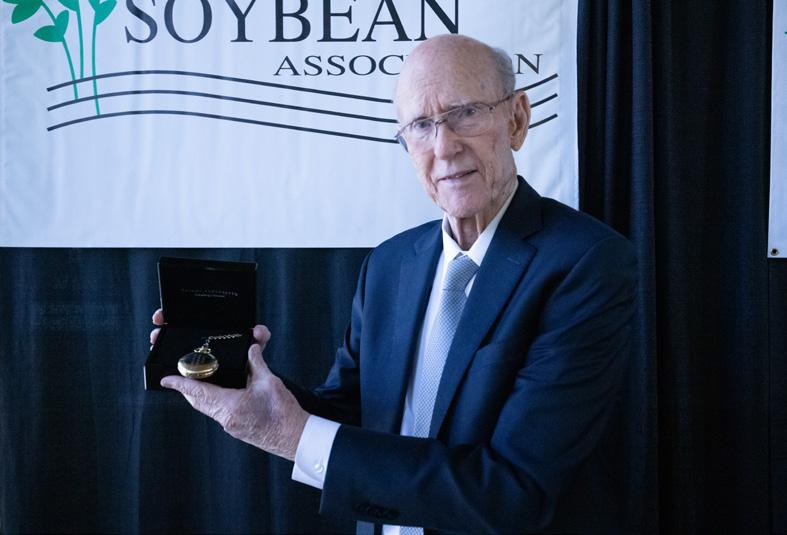
always took time to listen, ask us the hard questions and challenge us as Kansas farmers to engage with other members of the Senate to carry on agriculture’s story.”
His dedication to Kansas soybean farmers has not dwindled as he and his wife, Franki, traveled through the snowstorm to attend Expo.
Our customers are like family. Join the Taylor Seed family. Let’s succeed together.
“If there’s a soybean meeting, by golly I will be there,” Roberts said during his speech.
Roberts boasts a political career of 40 years, spanning 10 presidencies. As a fourth generation Kansan, Roberts knows and values the importance of farmers. He spent his career working to protect the right to farm and improve policy in favor of the farmer. Roberts briefly discussed how the EPA endangered list was built to protect the species on it. He left the audience with a final, heartfelt statement about protecting the agriculture industry, “Farmers, ranchers and growers are part of the endangered species list.”
Soybean growers in Kansas thank Senator Roberts for his time and service.
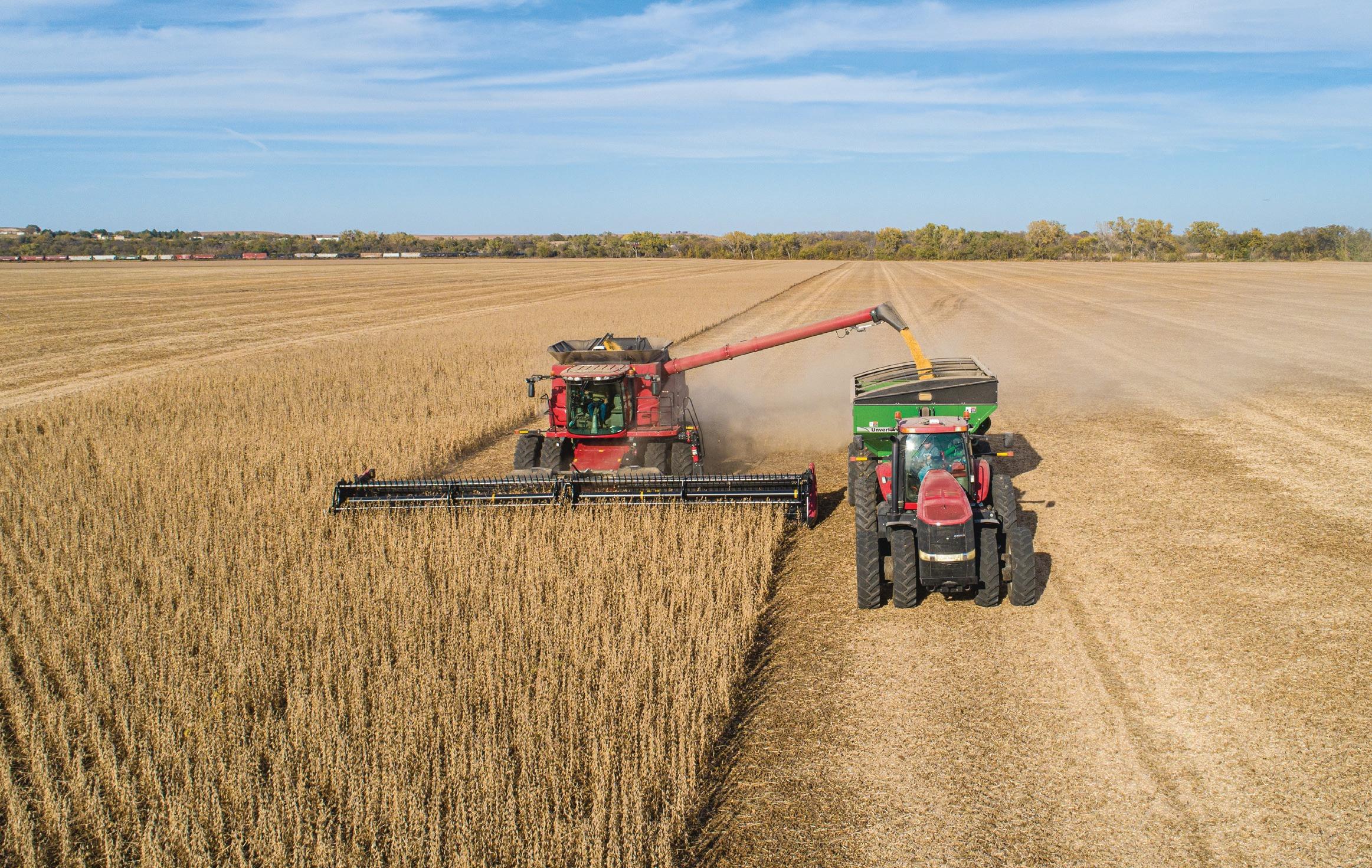
We only succeed when our customers do.
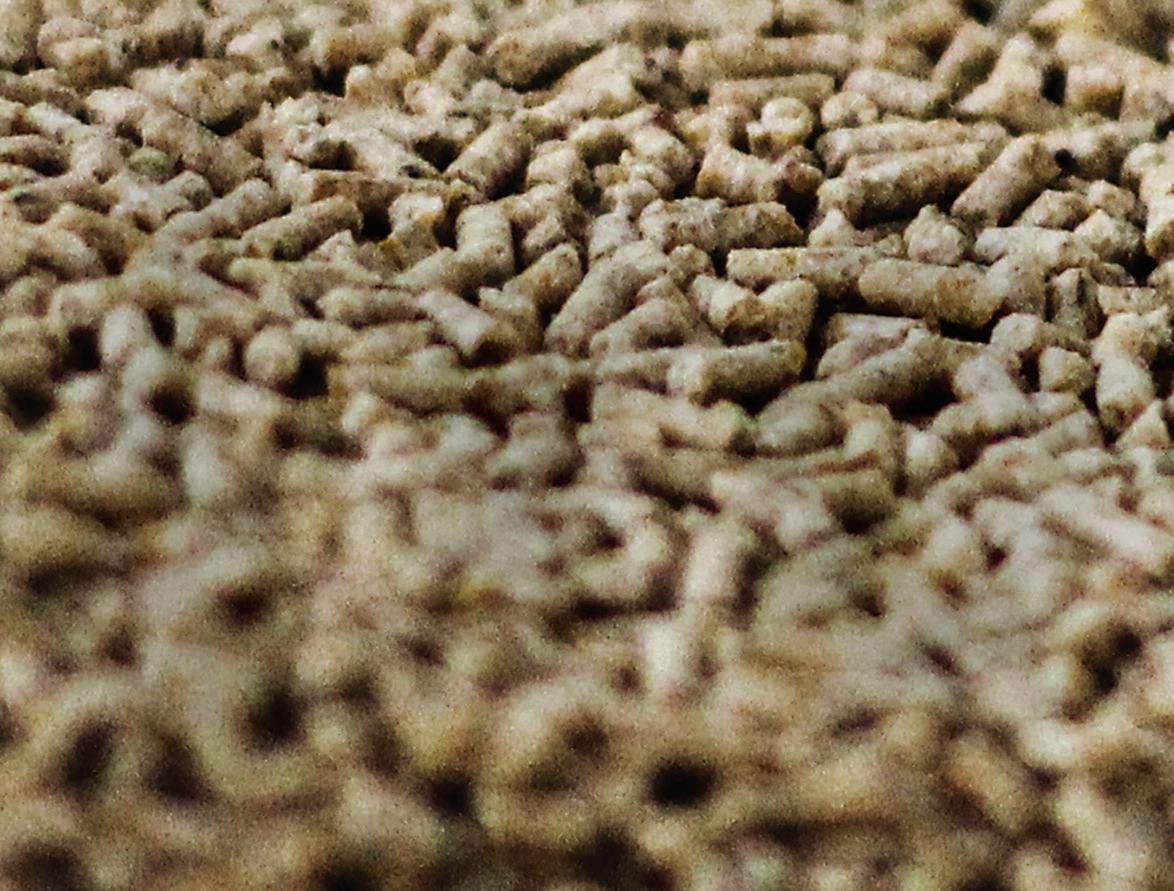


Who’s the No. 1 protein source in chicken feed? YOU are. That’s right. You’re winning.
All soybean farmers, including you, are really big in poultry and livestock feed. How? By pooling your resources through your soy checkoff. Learn how your soy checkoff is bringing tangible returns back to you and your operation at unitedsoybean.org/hopper
Moving Soy Forward.
Moving You Forward.

Corporate partners and advertisers are vital to the success of the Kansas Soybean Association. They provide the Association with financial support and link our state’s soybean farmers to the allied industries that provide inputs and capital to manage our enterprises. KSA also relies on corporate partners to keep us up-to-date with the latest breakthroughs in production technologies, and we all work together to create and implement environmental and trade policies that benefit the soybean industry.


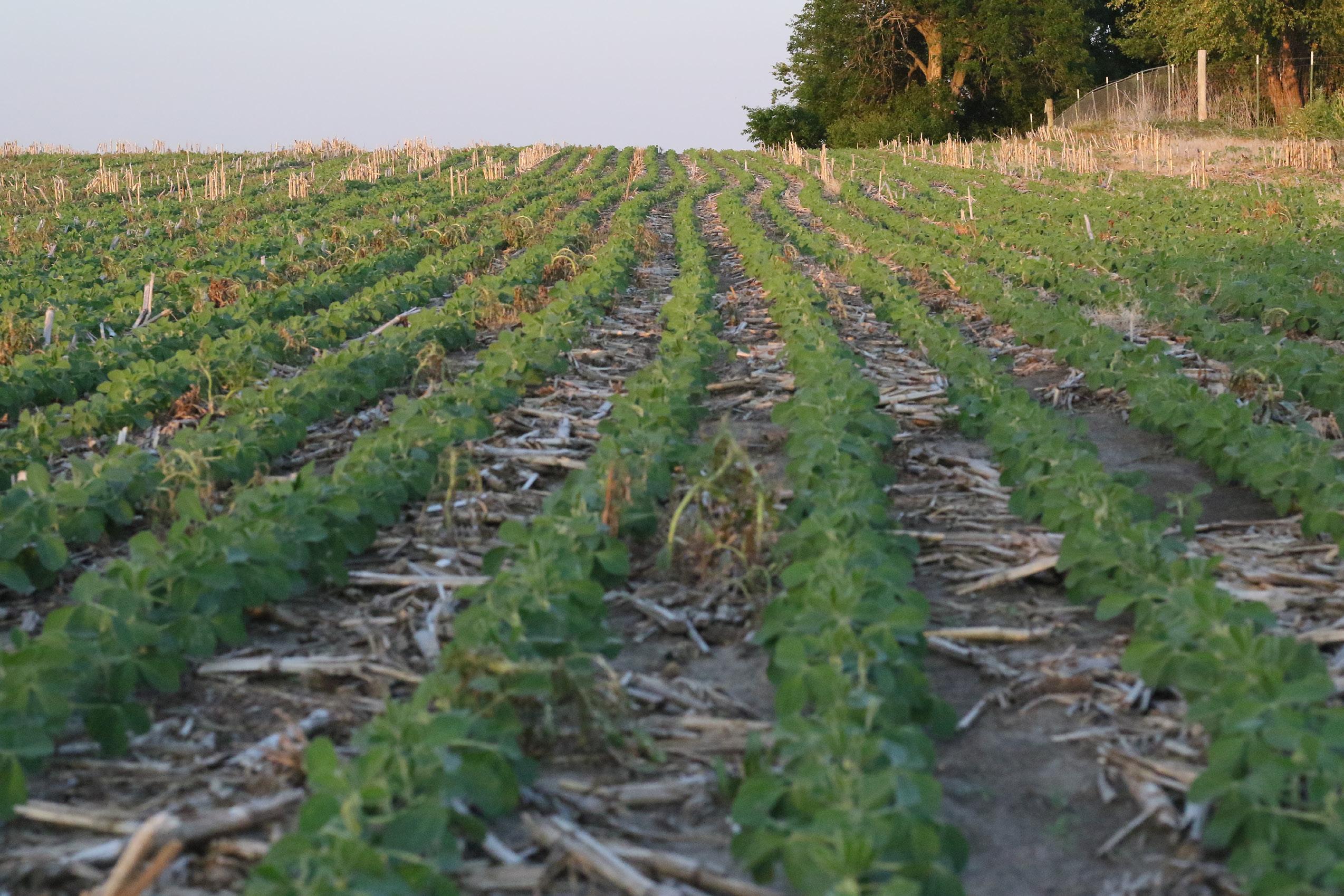
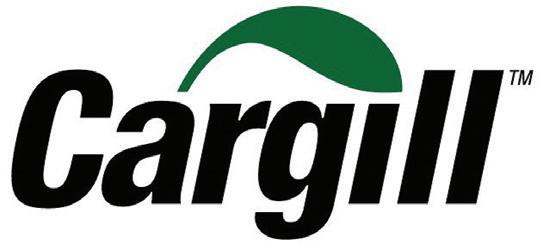
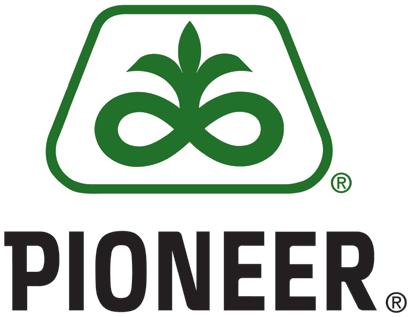




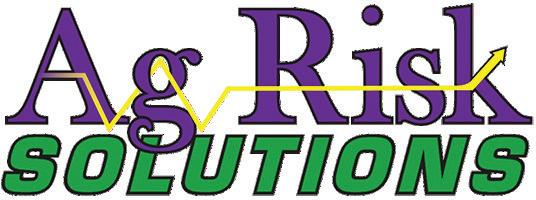
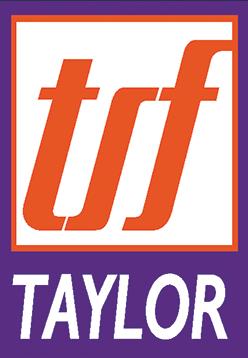
February 14-16 KFB Women Managing the Farm Conference; Manhattan
February 18-23 United Soybean Board Meeting; Louisville, KY
February 20 Kansas Soybean Association Legislative Luncheon; Topeka
Feb. 28-March 2 Commodity Classic 2024; Houston, TX
Feb. 27 Kansas Soybean Commission board meeting; Houston, TX
March 12-14 American Soybean Association board meeting; Washington, D.C.
March 15 Kansas Soybean Association board meeting; Topeka
March 18 National Biodiesel Day
March 21 National Ag Day
